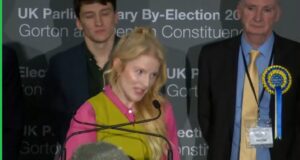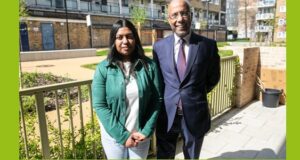Boris Johnson began this morning (Monday, 27th June) with a classic blunder. As he came out of his Islington home, to which he had returned after a weekend in his country home, he announced that all was well with the economy.
George Osborne had finally appeared, having gone to ground in the immediate aftermath of the referendum result. Osborne had made a statement saying that all would be well with the economy, which was strong. This was not unusual: it is what he often says. Osborne confirmed that he would not hold an emergency budget.
Accordingly, Boris welcomed the announcement. Specifically, he announced that “project fear” is over, pensions are safe, the pound is stable and markets are stable.
What was the “market’s” response to being told how well and stable it was?
The FTSE 100 continued to fall. Bank shares fell (a key worry, as problems with banks ripple quickly through the whole economy, as we know from 2008). Shares in property companies followed: again, this is a key economic indicator. Much of the UK’s apparent economic healing over the last eight years has been based on speculative redevelopment and property building.
The £ sterling continued to plummet – down to levels not seen for 30 years.
Just to add to the mixture, government bonds sank below 1% – for the first time ever. That, again, is key to a stable economy as government bonds are used as a key tool to correct the economy when the market dares to have one of its confidence wobbles.
So well done, Boris – wrong, wrong and wrong again.
•In the meantime, the Conservative 1922 Committee has announced that nominations for the next Tory Leader will open on Wednesday, with the contest running for just over two months. They plan to have a new leader in post on 2nd September.
Many commentators have been hailing Boris’s calming comments as a sign that he is looking to unite the Party. However, he held a gathering in his country home over the weekend, and Osborne’s temporary disappearance post-result signals that he has probably been in discussion with Boris and has agreed to switch camps and back Boris in return for keeping a senior government post. The clever money is still on the new Leader taking the Tories to the right.
•The Labour Right is seeing an opportunity: hoping that the new Tory Leader will hold a snap General Election (and there is no reason why the new Leader should, as the Parliament still has another four years to run), they have mounted a coup. They are using the tactic of mass resignations from the Shadow Cabinet to try to force a Labour leadership contest. Jeremy Corbyn has responded by appointing other MPs to his Shadow Cabinet and refusing to be pushed out. Pat Glass MP, new Shadow Secretary of State for Education, has told the BBC she is delighted with her promotion and wants to work on fighting the Tories, not on having a damaging and protracted Labour leadership contest so soon after the last one.
[Adverts]
 East London News A Force for the community…
East London News A Force for the community…




